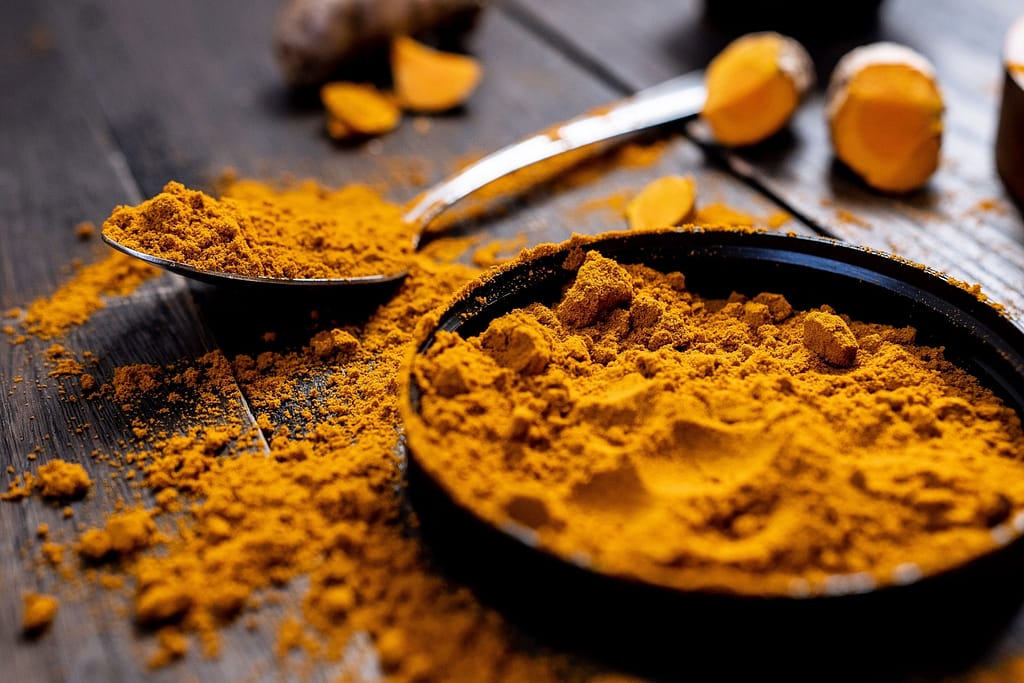The Nutritional Benefits of Turmeric
FITNESS | HEART HEALTH | WEIGHT LOSS
Reviewed by Dr. Nisha Singh, Dietitian (Ph.D.), MSc.FN.
Curcuma longa (turmeric) aka Haldi has been used in Asian cuisine for millennia as a spice and as a medicinal herb to cure inflammation, pain, wound healing, and digestive issues, to mention a few.

Turmeric and its bioactive curcuminoid polyphenols have been shown to affect a range of chronic diseases in clinical studies. Human experiments studying the usefulness of oral turmeric and its curcuminoids in treating various diseases and disorders were hampered by the poor oral bioavailability of these curcuminoids. Hundreds of clinical investigations exploring the effects of curcumin on inflammatory diseases and glucose/lipid dysregulation have been undertaken in the last decade. Turmeric is a herb that is widely used throughout the Middle East and Asia, not only to give meals a distinct flavour but also to reportedly provide health advantages as a component of traditional remedies. It’s been introduced to nutraceuticals, beverages, and processed foods in recent years.
Turmeric contains various bioactive compounds, including curcumin, demethoxycurcumin, and bisdemethoxycurcumin, of which curcumin is the most abundant. Curcumin, also known as diferuloylmethane, is a yellow pigment that constitutes up to 60 to 70% of crude turmeric extracts and is the main curcuminoid studied for health benefits. Turmeric also includes carbohydrates, proteins, resins, and volatile oils including turmerone, atlantone, and zingiberene, some of which may have biological action. A range of possible health advantages has been reported in preclinical studies, including treatment for heart disease, arthritis, Alzheimer’s disease, gastrointestinal problems, and metabolic syndrome (MetS).

Turmeric and Rheumatoid Arthritis
Turmeric isn’t an anti-inflammatory agent itself. Curcumin, the main ingredient in turmeric, has piqued the interest of scientists. According to research, curcumin inhibits the production of specific enzymes and cytokines that cause inflammation. This raises the possibility of curcumin being used as a supplement in the treatment of RA. The most effective approach to incorporate curcumin into your diet is through turmeric milk or pills and capsules. Many supplements contain additional substances that aid absorption, such as piperine (black pepper).
The Arthritis Foundation suggests taking 500 mg twice a day. Before taking any supplements, consult your doctor. Curcumin supplements have the potential to interact with medicines. Make sure your doctor is aware of any herbs or supplements you’re using.

Turmeric and Cancer
Curcumin contains antioxidant qualities that may assist the body to minimize inflammation. Cancer may arise as a result of inflammation. There is insufficient data to conclude that curcumin prevents or treats cancer. However, some research on the subject has yielded encouraging results. Curcumin exclusively affects cancer cells and does not affect healthy cells. Chemotherapy medications kill both healthy and malignant cells, therefore this is a critical stage in the treatment process. Curcumin can help combat pancreatic cancer cells, according to research, but bigger doses are required. To overcome this issue, Theracurmin, a highly bioavailable version of curcumin, was developed. The widely accessible supplement is designed to provide cancer patients with larger quantities of curcumin without causing harm. To assess Theracurmin’s efficacy, more research on persons with pancreatic and other malignancies is needed.


Turmeric and Diabetes Mellitus
Curcumin has been shown in studies to reduce blood glucose levels as well as other diabetes-related problems. Curcumin may play a role in diabetes prevention, according to the researchers. Turmeric extract has also been shown in tests to help stabilize blood sugar levels and make diabetes more manageable. Over-the-counter supplements contain this extract. It could also have broader health benefits, such as assisting digestion. More human clinical trials are needed to further understand the effects of curcumin and turmeric.
Due to the low bioavailability of small concentrations of curcuminoids in turmeric powder, culinary quantities of turmeric powder added to foods for sensory purposes are unlikely to give considerable health benefits for medical conditions. Curcuminoid extracts and other new formulations, on the other hand, may have the ability to help treat T2DM, MetS, and especially arthritic symptoms. However, it is premature to recommend curcuminoids as a supplement to improve health in a clinical setting or the general population due to inconsistent findings from trials of varying quality, and due to an incomplete understanding of curcuminoids’ effective doses and duration, as well as their safety and interactions with comedications.
Conclusion
Turmeric is usually thought to be safe to eat. Curcumin, the active component of turmeric, can induce unpleasant side effects when eaten in excessive doses. A high dosage is usually defined as more than 4 grams of curcumin per day. Nausea, indigestion, and diarrhoea are all possible side effects. Taking high doses of turmeric on a regular basis can cause liver problems. Turmeric should be avoided if you have gallbladder disease. Before using turmeric, talk to your doctor. They can evaluate your medical history and discuss the advantages and disadvantages.
